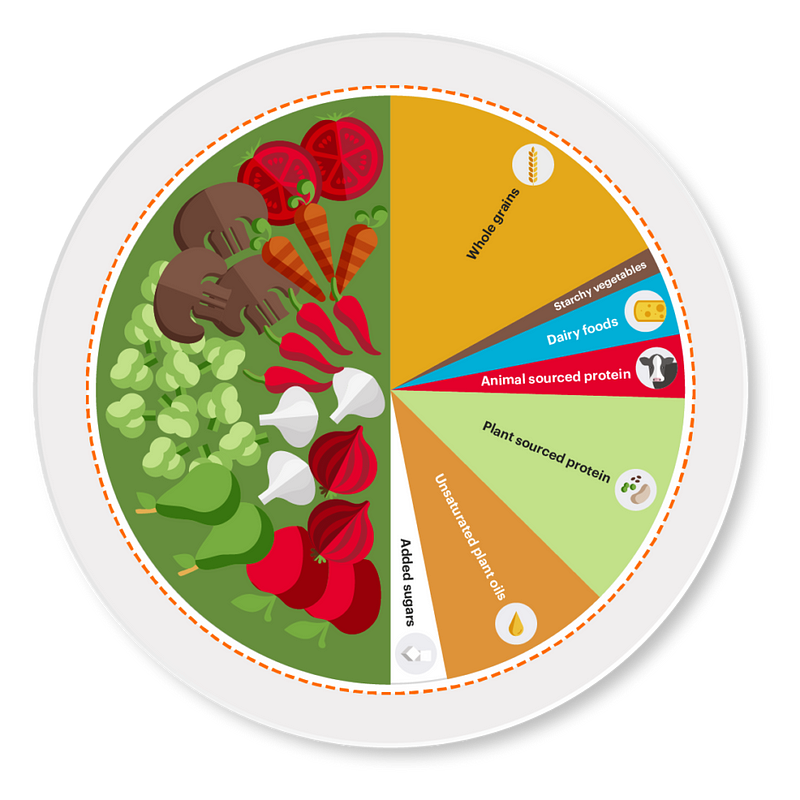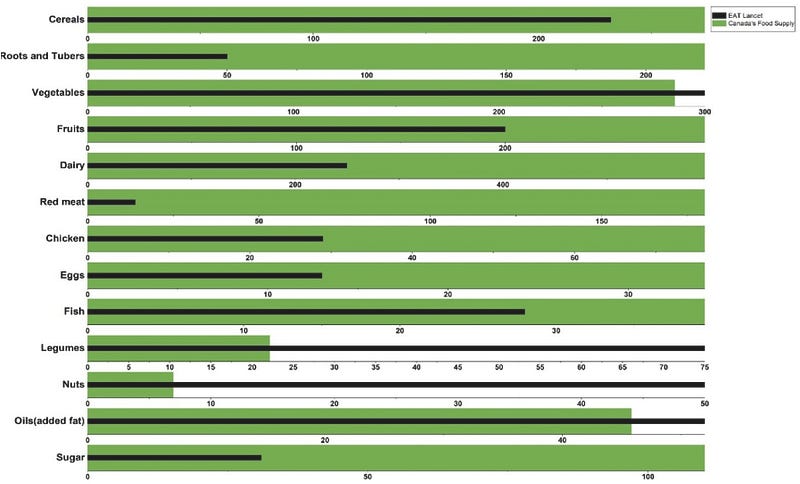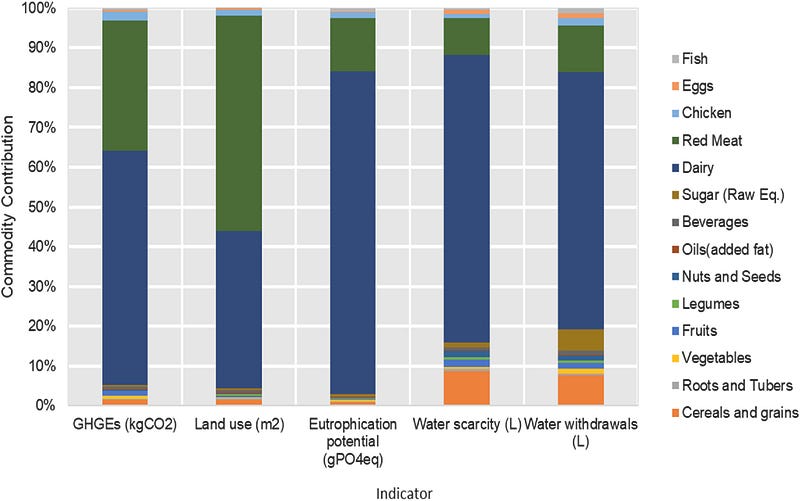Is a Healthier Diet Also Beneficial for Our Planet?
Written on
The Intersection of Diet, Health, and Sustainability
Aligning our food choices with dietary guidelines not only enhances personal health but also significantly mitigates environmental damage.

Photo by Jason Briscoe on Unsplash
Historically, it's been understood that environmental policies, such as reducing air pollution, positively impact public health. Yet, one challenge seems tougher than abandoning fossil fuels: the reluctance to give up beloved foods like steak. But could altering our diets for the sake of the planet also yield long-term health benefits?
In today's society, our dining habits reflect not only cultural preferences but also our awareness of environmental issues. As climate change becomes increasingly urgent and health concerns like obesity and diabetes rise, exploring the relationship between diet, health, and sustainability is more crucial than ever.
Can the dietary adjustments that promise to protect our planet also enhance global health? This fundamental question drives a comprehensive study conducted by researchers from McGill University and the International Food Policy Research Institute, which investigates whether a diet that is good for the Earth could also be beneficial for our health.

A chart representing the recommended EAT-Lancet Diet. Source: Eat Forum
The research team undertook an ambitious examination of Canada's food supply data, covering nearly sixty years from 1961 to 2019. They aligned this data with two key nutritional frameworks: the Canada Food Guide and the internationally recognized EAT-Lancet dietary recommendations. These guidelines advocate for reduced consumption (not complete elimination) of red meat and sugar while promoting increased intake of nuts, legumes, and vegetables—foods commonly associated with sustainable eating.
Utilizing advanced statistical methods and environmental impact assessments, the researchers evaluated how closely the Canadian food supply met these ideal consumption patterns. They assessed a range of factors, including greenhouse gas emissions, water consumption, and land use related to various food categories, while also examining the health impacts of these food groups. Their findings provided a detailed overview of how our dietary choices affect both environmental and health outcomes.

Average food supply pattern (g/capita/day) from 1961 to 2019 in comparison to the EAT-Lancet Planet Health Dietary Recommendations. Source: Abe-Inge, et al., 2024
The study revealed a striking contrast. On one side, there is an abundance of foods like red meat and added sugars, known for their substantial environmental impact and associations with health conditions such as heart disease and diabetes. Conversely, the research highlighted a concerning deficiency in plant-based foods like nuts and legumes, which are beneficial for both health and sustainability.
A particularly notable finding was the environmental burden posed by animal-based foods. Despite comprising a smaller segment of the food supply, these items contributed disproportionately to environmental degradation, pointing to a significant opportunity for improving both health and ecological impacts.

Environmental impact of the per capita daily total food supply in Canada. Source: Abe-Inge, et al., 2024
Fortunately, the research also indicates gradual shifts within the Canadian food supply towards more sustainable and health-oriented practices. The increasing availability of poultry and eggs, coupled with a slow decline in red and processed meat consumption, hints at a possible movement towards better alignment with current dietary guidelines.
Implications for Consumers and Policymakers
What do these findings mean for everyday consumers and decision-makers? They highlight the urgent need for a holistic approach to realign the food supply chain to encourage healthier and more sustainable eating habits. Potential strategies could include implementing taxes on unhealthy food items while subsidizing healthier, more sustainable alternatives, fostering better choices among producers and consumers alike.
The study also reveals a win-win scenario: what benefits the planet also promotes our health. Reducing (not entirely eliminating) the consumption of environmentally harmful and health-detrimental foods like red meat while increasing our intake of plant-based options can lead to significant improvements in individual health and global environmental sustainability.

Photo by Brooke Lark on Unsplash
This thorough research underscores a powerful narrative: aligning our diets with ecological sustainability is not merely an idealistic dream but a practical approach to fostering healthier populations and a thriving planet. Just as the global movement to reduce pollution emphasizes common goals, the call for dietary transformation resonates with the same theme: the pathways to environmental sustainability often coincide with routes to improved health for everyone.
It's not about completely forsaking animal products—my family still enjoys them occasionally—but rather about finding a balance in our diets that benefits both ourselves and the planet. Adopting a more environmentally responsible diet is not solely about sustainability; it’s about securing a healthier future for ourselves and the generations to come. Thus, it may be time to reconsider our eating habits and how our choices reflect our commitment to our health and our planet—for ourselves and future generations.
Published in The New Climate. Follow for the latest in climate action.